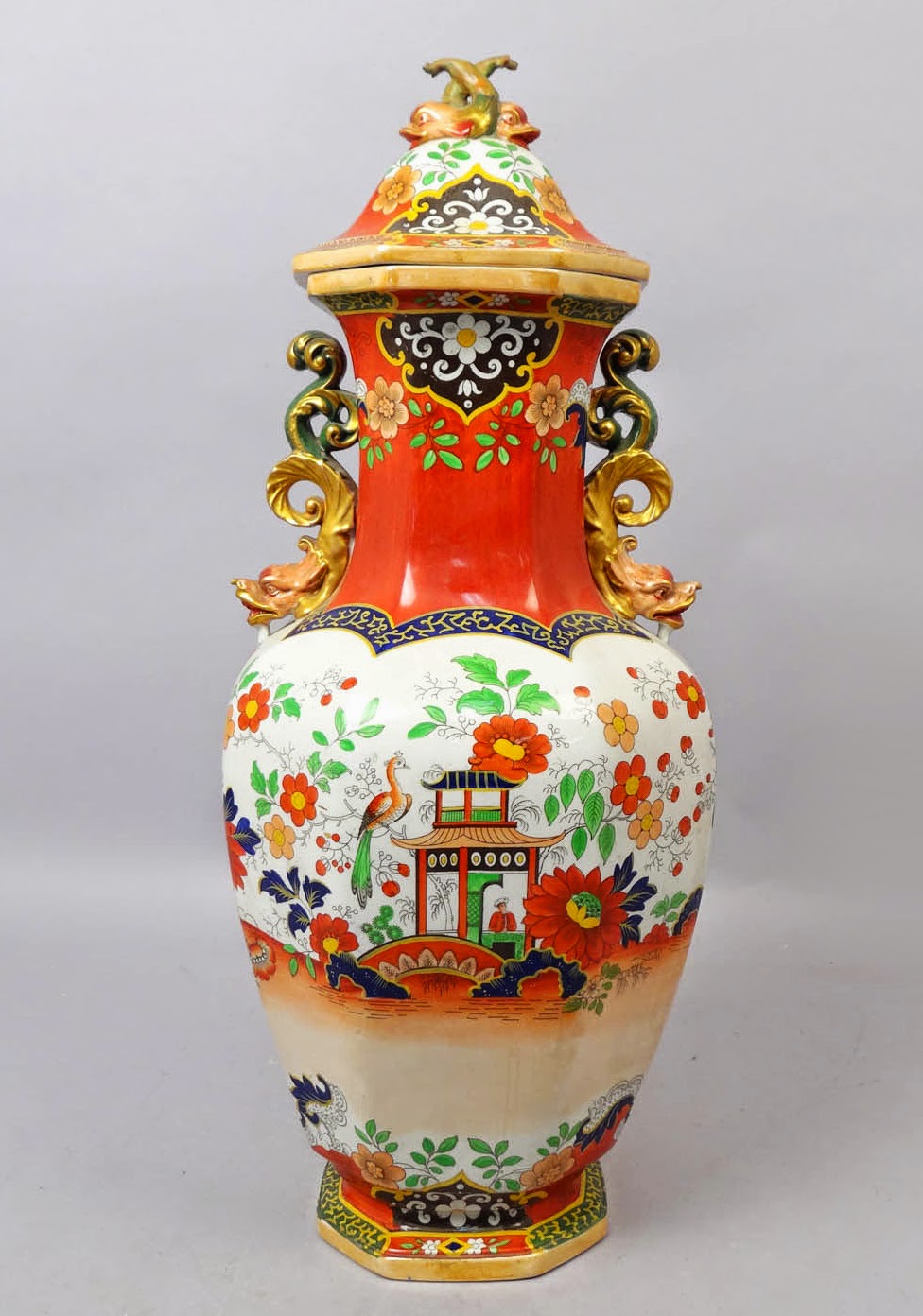Today we put the spotlight on an antique porcelain urn whose seemingly straightforward (and quite beautiful) appearance belies an unusual background.
In the 19th century, English manufacturers were realizing the great untapped European market for Japanese Imari porcelain. Japan had been largely closed to the Western world for years, limiting its foreign trade strictly through Dutch and Chinese traders. Japanese goods were admired for their beauty and prized for their scarcity. 19th century English manufacturers capitalized on this and subsequently set to making fine quality reproductions of traditional Japanese Imari porcelain wares.
This monumental urn is a beautiful example of the English reproductions of Japanese designs. The urn is influenced by the vibrant Imari-type patterns, with bold colors and ornate figural handles depicting dragons and fish. The transfer print decorations are finely detailed and vividly colored using classic Imari motifs. The base exhibits an underglaze transferprint English Royal Arms mark with rampant lion and unicorn. This variation of the mark was used in England as early as 1837.
 This mysterious hallmark is where the story of this urn becomes so interesting. The lion and unicorn hallmark would seem to indicate this urn was one of those 19th century English
reproductions. Notably absent from the mark, however, is any
indication of the specific potter, potter location, or pattern name. As English pottery was always marked for maker, it is a near certainty that
this urn is a later copy of the types of Imari porcelain crafted in
England. Considering the high glaze and style, it is most likely that
this urn is actually an early 20th century Japanese copy of the English
imitations of the original Japanese Imari decorated porcelain.
This mysterious hallmark is where the story of this urn becomes so interesting. The lion and unicorn hallmark would seem to indicate this urn was one of those 19th century English
reproductions. Notably absent from the mark, however, is any
indication of the specific potter, potter location, or pattern name. As English pottery was always marked for maker, it is a near certainty that
this urn is a later copy of the types of Imari porcelain crafted in
England. Considering the high glaze and style, it is most likely that
this urn is actually an early 20th century Japanese copy of the English
imitations of the original Japanese Imari decorated porcelain. This is a wonderful work of decorative art displaying a fine degree of craftsmanship. The convoluted background of the piece - an antique copy of an antique imitation of traditional Japanese design - makes it a fascinating piece of design history.
Learn more about this Japanese English Imari design ironstone china urn here.
Visit our store for more fine quality antique porcelain pieces.


No comments:
Post a Comment